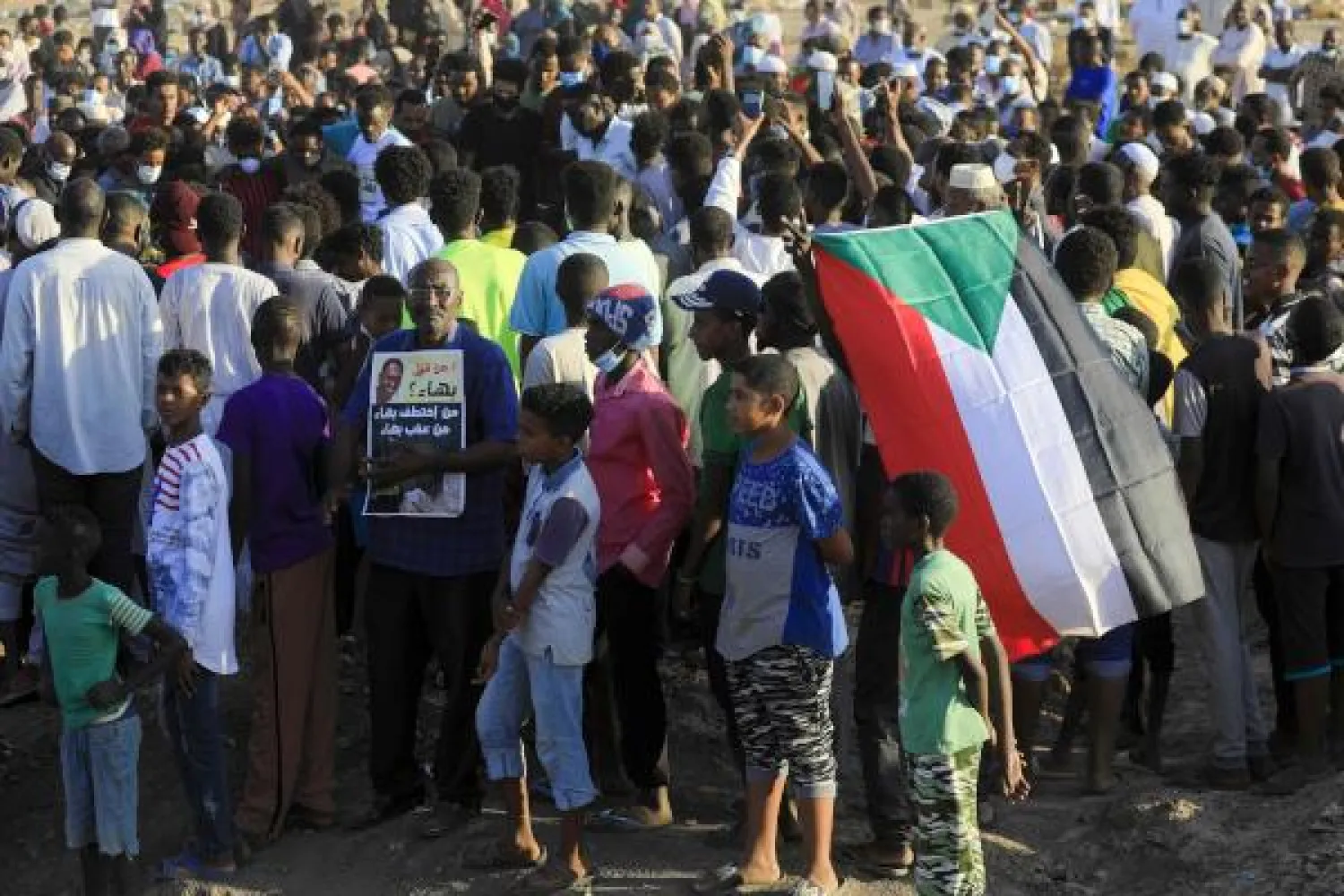Thousands of Sudanese on Tuesday attended the funeral service of a man who was apparently tortured to death this month at a detention center run by the Rapid Support Forces.
Bahaa el-Din Nouri, 45, was snatched Dec. 16 while sitting at a coffee shop in Khartoum by men wearing plain clothes and riding in a vehicle without license plates. His death sparked outrage across Sudan.
Five days later, his body appeared at a hospital morgue in the city of Omdurman, just across the Blue Nile River from Khartoum. The family refused to take the body for immediate burial after seeing signs of apparent beating and torture, and asked for an autopsy to reveal the cause of death.
Culture and Information Minister Faisal Mohammed Saleh said Nouri died while being while being interrogated by the Rapid Support Forces, a force comprised of former militiamen who executed a brutal crackdown in Sudan’s Darfur region in 2000s.
Public Prosecutor Taj al-Ser Ali al-Hebr said late Monday the autopsy confirmed that the 42-year-old electrician died of injuries consistent with being tortured, and he has taken “the necessary measures” to have those implicated in Nouri’s death handed over to prosecutors.
Sudanese Gen. Mohammed Hamdan Dagalo, commander of the Rapid Support Forces, said he has removed immunity for any RSF members under suspicion to allow the prosecutors’ investigation to go forward unhindered. Dagalo is also the deputy head of the ruling sovereign council.
The RSF did not give reasons for Nouri's detention. However, a report by Sudan’s Monti-Caroo news website, which covers RSF activities, said he was being interrogated over allegations of belonging to a “terrorist group trading in explosives.” The report did not provide further details.
On Tuesday, thousands of Sudanese held a protest march from the morgue to the cemetery for Nouri’s burial in Khartoum. On their way, they stopped at RSF headquarters in Khartoum and screamed chants against the paramilitary force and called for suspects to be held accountable.
Nouri’s death sparked outcry across the country. The Sudanese Professionals’ Association, which helped spearhead mass protests that led to the military’s ouster of president Omar al-Bashir last year, called for the closure of all detention centers run by the RSF.









